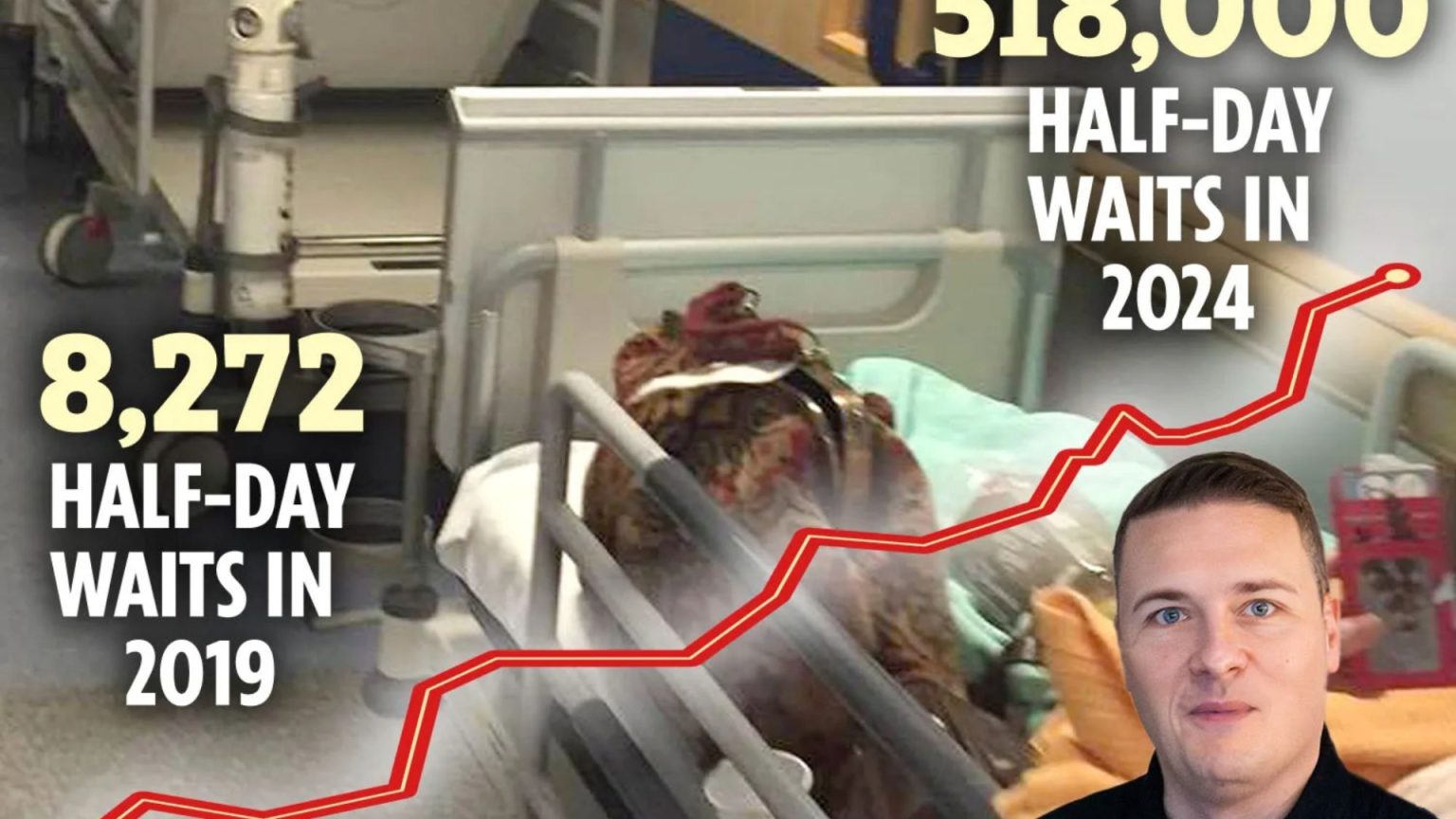The National Health Service (NHS) in England is facing an unprecedented crisis, with a record 518,000 patients enduring trolley waits of 12 hours or more in Accident and Emergency (A&E) departments during the last year. This represents a staggering increase compared to 2019, when only 8,272 patients experienced such prolonged waits. The surge in lengthy waiting times highlights the immense strain on the NHS, with overcrowded hospitals and a shortage of available beds contributing to the deteriorating situation. The current figure dwarfs pre-pandemic levels, indicating a significant worsening of the crisis within the NHS. This dire situation has prompted calls for immediate government intervention to address the systemic issues plaguing the healthcare system.
The Liberal Democrats, who compiled the data revealing the alarming increase in trolley waits, are urging the government to prioritize reducing bed occupancy levels to a safer rate of 85 percent. Currently, bed occupancy stands at 93 percent, according to the Royal College of Emergency Medicine, indicating a critical shortage of available beds. This high occupancy rate contributes to the bottleneck in A&E departments, forcing patients to wait for extended periods in uncomfortable and often unsafe conditions. The Liberal Democrats’ call for urgent action underscores the severity of the situation and the need for immediate measures to alleviate the pressure on hospitals and improve patient care.
Health Secretary Wes Streeting’s department acknowledges the gravity of the situation, admitting that “corridor care has become a normal feature” and that patients are receiving “unacceptable standards of treatment.” While acknowledging the broken state of the NHS, the department insists it is taking action and maintains that the system can be fixed, albeit with the caveat that it “will take time.” This statement reflects the long-standing challenges facing the NHS, including chronic underfunding, staff shortages, and increasing demand, which require comprehensive and sustained efforts to address effectively.
The crisis has been further exacerbated by a “quad-demic” of flu, Covid-19, norovirus, and the RSV virus, overwhelming hospitals and leading to critical incidents being declared at numerous facilities. The convergence of these respiratory illnesses has placed an unprecedented burden on the NHS, stretching resources thin and further contributing to the long wait times. The situation underscores the vulnerability of the healthcare system to surges in demand and the urgent need for greater resilience and capacity to cope with such challenges.
One striking example of the strain on hospitals is Whittington Hospital in North London, which recently advertised for a “corridor shifts nurse,” highlighting the normalization of treating patients in corridors due to bed shortages. Dr. Ian Higginson, an emergency medicine expert, shared the advertisement on social media platform X (formerly Twitter), warning that the situation remains critical despite the temporary standing down of some critical incidents. He emphasized that hospitals across the country are resorting to treating patients in corridors and even car parks due to overcrowding. This practice raises serious concerns about patient safety and dignity, reflecting the desperate measures hospitals are taking to cope with the overwhelming demand.
Whittington Health NHS Trust acknowledged the “very significant pressure” it is facing, describing the corridor nursing position as a last resort. This admission highlights the difficult choices hospitals are forced to make in the face of limited resources and overwhelming demand. The situation at Whittington Hospital exemplifies the broader crisis within the NHS, where overcrowding and staff shortages are compromising patient care and forcing healthcare professionals to make difficult decisions in challenging circumstances. The need for comprehensive and sustainable solutions to address the underlying issues within the NHS has become increasingly urgent.











